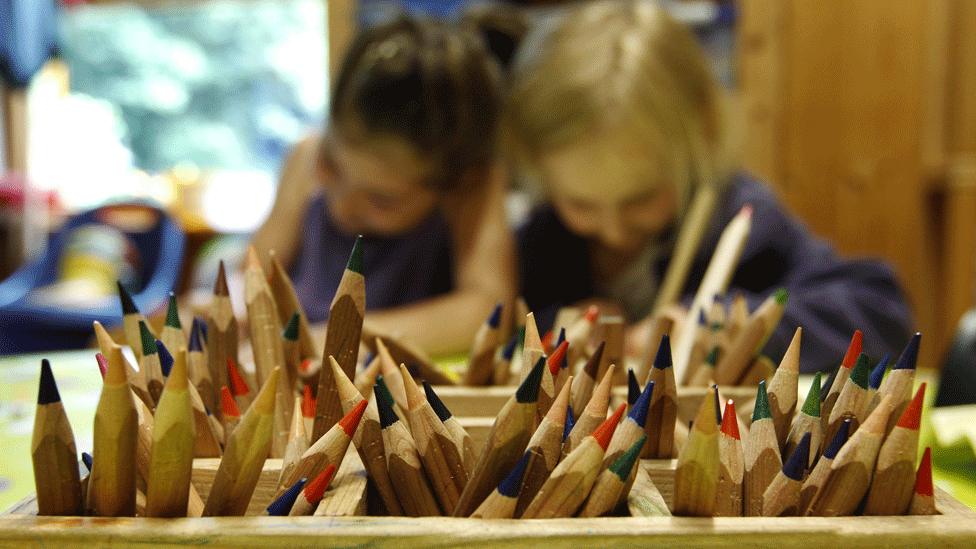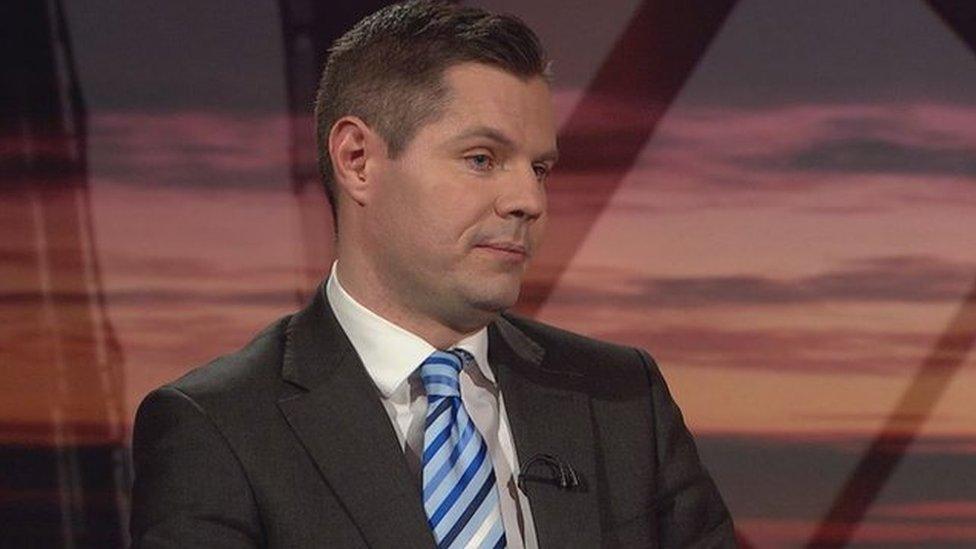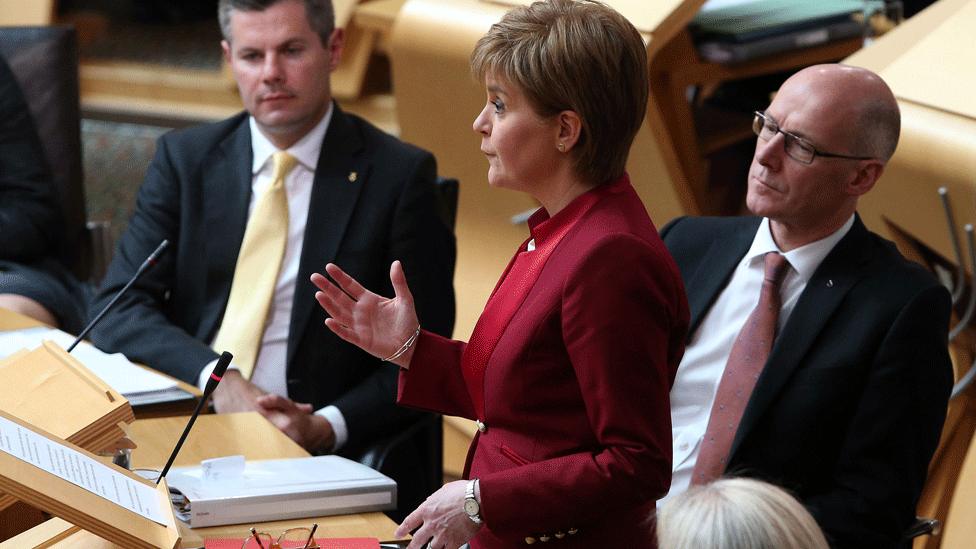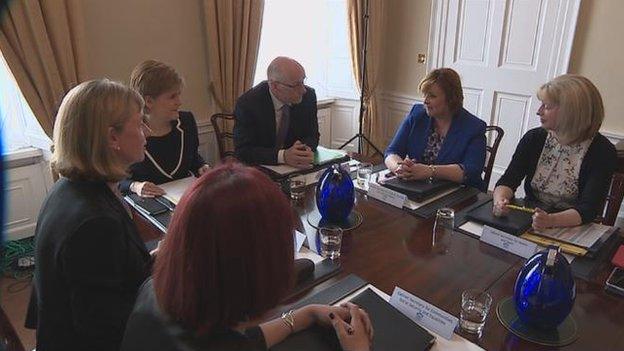Role of Scottish councils in delivering education set to change, says minister
- Published

The Scottish government has pledged to make education its top priority in this parliament
Scotland's Finance Secretary Derek Mackay has suggested that the role Scotland's 32 councils play in delivering education is set to change.
Speaking to BBC Radio's Good Morning Scotland programme, he said there was "nothing wrong" with local authorities running schools.
However, he insisted "we can do things differently" in how schools are funded.
Cosla, which speaks for most Scottish councils, said local authorities had a "very good record on education".
Its education spokeswoman, Councillor Stephanie Primrose, said councils were not complacent and were "always happy to seek ways of improvement".
However, she added: "Scotland's councils have a very good record on education, as the first minister said yesterday herself pointing to record exam passes and good positive destinations.
"The finance minister has also said that there is nothing wrong with councils running education. We have also had a positive report last year from international experts (the OECD) on the state of Scottish education."
'We can do things differently'
Mr Mackay, who was given his new finance role in First Minister Nicola Sturgeon's cabinet reshuffle, said it was the government's intention for head teachers to run devolved management budgets.
He explained that there would be a different approach to funding and "how we address resources".
Mr Mackay said: "We've spoken about funding going direct to schools and that's different than has been the case before - realigning funding to ensure that those with the least in life receive the most support at school.

Derek Mackay says school funding can be done "differently"
"So there will be, yes, a different relationship in how education is delivered."
He added: "There's nothing wrong with local authorities running schools, but we can do things differently in how they're funded and how we address the attainment gap because we recognise that there's more to do and [to] engage more with the head teachers running the devolved management budgets."
Opposition parties said they would work with the government on education, but urged "genuine reform".
The Scottish Conservatives believed the government needed to set out the detail and give "real power" to schools.
The party's spokeswoman, Liz Smith, said there was a "growing consensus" that one size did not fit all when it came to education.
She added: "However, the SNP needs to set out in detail what it is proposing. We want real power and control heading to schools - these reforms must not be used as a smokescreen for yet more SNP centralisation."
Labour's Iain Gray questioned the amount of time it had taken the SNP to turn its attention to education.
He explained: "Why has it taken nine years for the SNP to wake up to the fact that this is the biggest investment we can make in our future, both the fairness of future society, but also our economic prosperity."
Panel of education experts
Ms Sturgeon told Holyrood on Wednesday that education and the economy were her top priorities.
She said her ministers aimed for "real and lasting progress towards true equality of opportunity".
An international council of educational experts will be appointed to advise the government on improvements to schools.
It will be formed over the summer and will focus on closing the attainment gap in schools, achieving equality and educational system reform.
The first minister reshuffled her cabinet with her key priorities in mind, introducing separate finance and economy portfolios and moving her deputy John Swinney from finance to the education brief.
- Published25 May 2016

- Published24 May 2016
